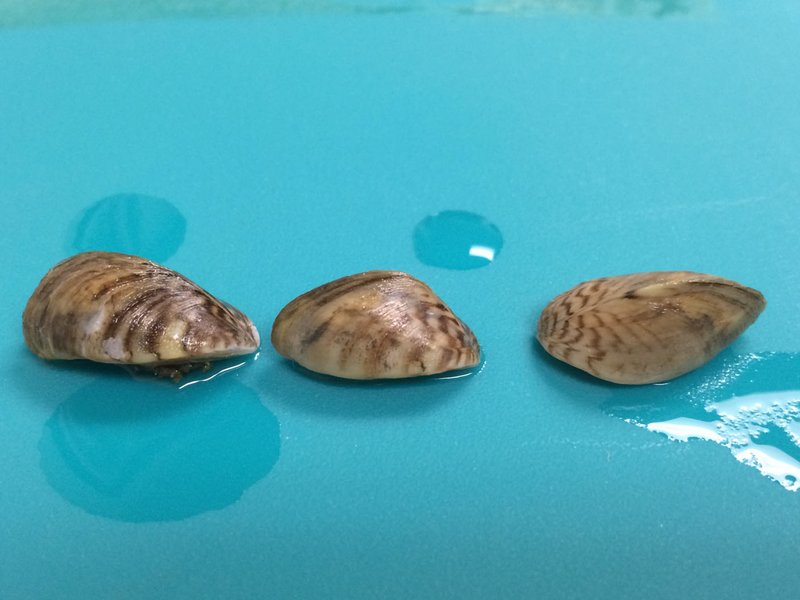Zebra mussels from Bull Shoals Lake nearly hitchhiked into Lake Norfork on the hull of a boat carrying the harmful mussels. Beaver Lake is free of zebra mussels, but has had its own close calls.
The saga at Lake Norfork unfolded two weeks ago. A marina was hired to move a boat to Lake Norfork after the new owner purchased the vessel docked at Bull Shoals. Marina employees spotted zebra mussels on the hull and didn't launch the boat. They contacted the Arkansas Game and Fish Commission, according to a report from the agency. Thanks to the marina workers, Lake Norfork remains free of zebra mussels.
A close call with the invasive mussels happened at Beaver Lake three years ago. Jon Stein, area fisheries biologist with Game and Fish, remembers it well.
"We got a call from a guy over near Decatur who had bought a bunch of dock flotation from somewhere in the upper Midwest. He had it shipped here and was going to sell it. When the flotation was delivered, the guy saw that it was covered in zebra mussels," Stein said.
Game and Fish was contacted and the man took the proper steps to kill the zebra mussels, Stein said.
Zebra mussels haven't found their way to Beaver Lake, Stein confirmed, but they're close. The Arkansas River and Oklahoma's Grand Lake have them. Lots of anglers and pleasure boaters use their boats on these waterways and Beaver Lake. It's important for boaters to wash their boat and trailer after using it on any waterway that has zebra mussels before launching at Beaver Lake.
Zebra mussels multiply quickly and attach themselves to boat hulls, docks, swim ladders. water intakes, anything in the water that doesn't move. Their shells are razor sharp and can cut swimmers.
Stein was a fisheries biologist in Kansas and worked at one lake that had zebra mussels.
"One year they drew the lake down seven feet. Every stick and rock, every beer bottle was covered with them," he said.
As a result of the close call at Lake Norfork, Stein and fisheries biologist Kevin Hopkins plan to meet with owners and employees at every marina on Beaver Lake to show them how to spot zebra mussels. They hope the boating public is aware of the zebra mussel threat.
"It's better to be pro-active than reactive," Hopkins said.
Compared to some upper Midwest states, Arkansas doesn't have a large problem with zebra mussels and other invasive species.
"Some of those states spend millions on eradication when they could be using that money for something else. We don't want to get into that problem here," Stein said.
Should zebra mussels find their way to Beaver Lake, there's no telling how long it would take for people to notice them on their docks and boats.
"They first noticed them at Bull Shoals in 2007. It took three to five years there," Stein said.
Here are steps from Game and Fish that boaters should take after cruising mussel-infested waters:
• Inspect the boat and trailer for any visible zebra mussels. Remove any weeds. Drain bilge water well away from any other water source. Rinse the boat hull and drive unit with a hard spray from a garden hose.
• If the boat was used on infested waters for a long time, pressure wash the boat and trailer with hot water (104 degrees) or take it to a car wash. Dry it in the sun for at least five days.
• Dispose of any leftover bait and water in bait buckets on land.
Flip Putthoff can be reached at [email protected] or on Twitter @NWAFlip
Sports on 01/19/2016

